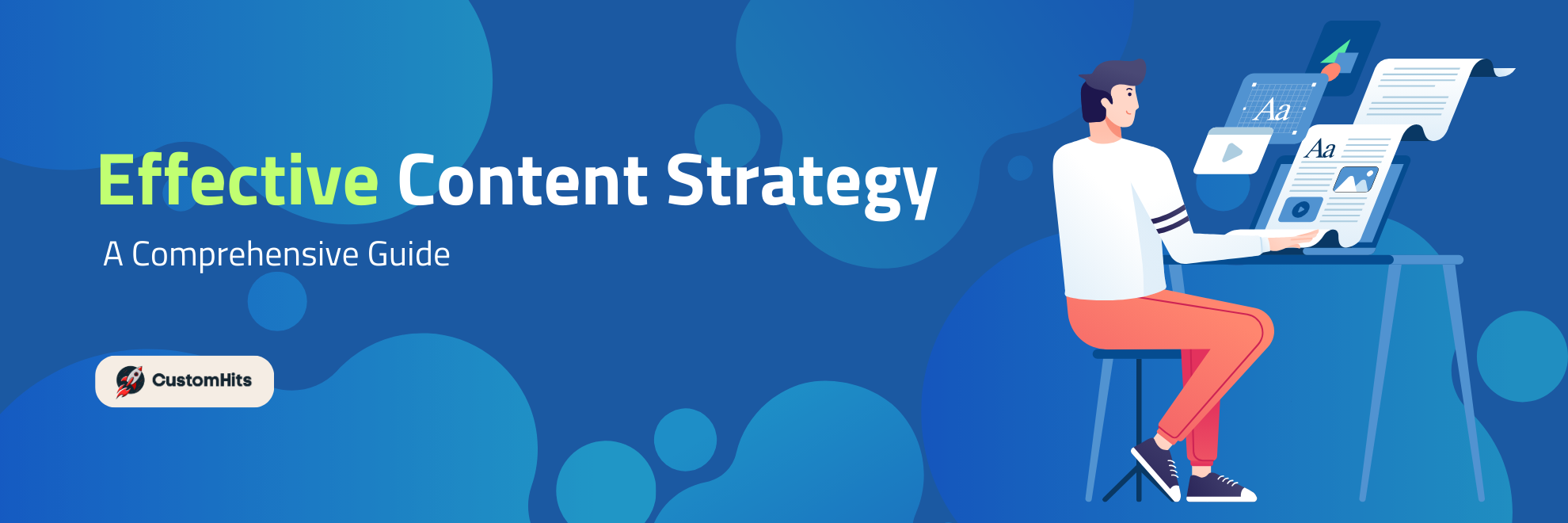

Overview
Content
Hey there, content enthusiasts! Ready to dive into the exciting world of content strategy? Whether you're a small business owner, a social media maven, or just someone curious about boosting their online game, you're in the right place.
We're about to unravel the secrets of creating killer content that not only speaks to your audience but also propels your brand into the digital limelight. No jargon, no fuss – just simple strategies to make your content game strong.
1. Understanding Content Strategy
1.1 Definition and Importance
Content Strategy is all about planning, creating, delivering, and managing content. It's not just about writing articles or making videos; it’s a whole lot more. It's about understanding who you're talking to (your audience), what they need or want to hear from you, and how best to deliver that in a way that's enjoyable and useful for them.
1.2 Aligning with Business Objectives
Before diving into content creation, it's crucial to align your strategy with your overall business objectives. Identify key performance indicators (KPIs) that matter most to your organization, whether it's increasing website traffic, generating leads, or building brand awareness. Understanding these goals will inform the type of content you create and the platforms you leverage.
2. Audience Research and Persona Development
2.1 Knowing Your Audience
Successful content strategies are built on a deep understanding of the target audience. Conduct thorough research to identify your audience's demographics, interests, pain points, and online behavior. Tools like Google Analytics and social media insights can provide valuable data to shape your content strategy.
2.2 Creating Buyer Personas
Developing detailed buyer personas helps humanize your target audience. Create fictional characters that represent different segments of your audience, incorporating details such as age, job title, challenges, and goals. These personas will guide content creation by ensuring it resonates with the specific needs and preferences of your audience.
3. Content Planning and Ideation
3.1 Content Calendar
A content calendar is a roadmap for your content strategy. It helps in organizing and scheduling content creation, ensuring a consistent and timely output. Consider the frequency and timing of your content based on audience behavior and platform algorithms.
3.2 Content Ideation Techniques
Generating fresh and relevant content ideas can be challenging. Employ techniques such as brainstorming sessions, competitor analysis, and keyword research to discover topics that align with your brand and resonate with your audience. Leverage tools like Google Trends and BuzzSumo to identify trending topics in your industry.
4. Content Creation and Optimization
4.1 Quality Over Quantity
While consistency is essential, prioritize the quality of your content. High-quality, valuable content builds trust and authority, leading to increased audience loyalty. Invest time in crafting well-researched and compelling pieces that address your audience's needs.
4.2 SEO Best Practices
Optimizing your content for search engines is vital for organic reach. Conduct keyword research to identify relevant terms and integrate them naturally into your content. Pay attention to on-page SEO elements, including meta titles, descriptions, and header tags.
5. Diversifying Content Types
5.1 Embracing Multimedia
Diversify your content by incorporating multimedia elements such as images, infographics, videos, and podcasts. Different audiences prefer consuming content in various formats, so catering to diverse preferences enhances your reach and engagement.
5.2 User-Generated Content
Encourage your audience to contribute to your content strategy through user-generated content. This not only fosters a sense of community but also provides authentic perspectives that resonate with other users.
6. Distribution Channels and Promotion
6.1 Choosing the Right Platforms
Identify the platforms where your audience is most active and tailor your content distribution strategy accordingly. Whether it's social media, email newsletters, or industry-specific forums, selecting the right channels is crucial for maximizing reach.
6.2 Paid Promotion Strategies
While organic reach is valuable, consider incorporating paid promotion strategies. Platforms like Facebook and Instagram offer targeted advertising options, allowing you to reach specific demographics and maximize the impact of your content.
7. Analyzing and Iterating
7.1 Performance Measurement
Regularly assess the performance of your content strategy using analytics tools. Track metrics such as website traffic, conversion rates, and social media engagement to gauge the effectiveness of your efforts.
7.2 Iterative Improvement
Based on performance data, iterate and refine your content strategy. Identify what works well and what needs improvement, adjusting your approach to align with evolving audience preferences and industry trends.
8. Staying Adaptive in a Dynamic Landscape
8.1 Keeping Abreast of Trends
The digital landscape is ever-evolving, with new trends and technologies emerging regularly. Stay informed about industry trends, algorithm changes, and evolving consumer behaviors to adapt your content strategy accordingly.
8.2 Embracing Change
Be prepared to pivot your strategy when necessary. Whether it's a shift in audience preferences or a new platform gaining prominence, a flexible content strategy ensures your brand remains relevant and visible.
Conclusion
In conclusion, a well-crafted content strategy is integral to achieving your business objectives and connecting with your target audience. By understanding your audience, planning thoughtfully, creating high-quality content, and adapting to changing dynamics, you'll build a robust online presence that stands the test of time. Remember, a successful content strategy is not a one-size-fits-all approach; it's an ongoing, iterative process that requires dedication, creativity, and a deep understanding of your audience and industry.
